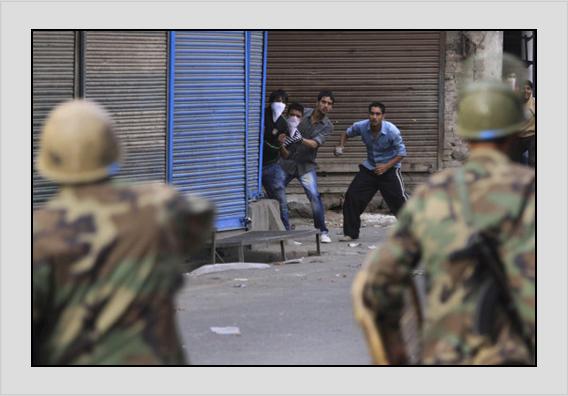
Improving Indonesia’s Counterterrorism Efforts
July 20, 2010
Asia’s Turbulent Waters: Blue Water Tensions in the Yellow Sea
July 29, 2010The deaths of over one dozen young Kashmiri citizens in recent weeks mark a departure from a period of relative calm in the volatile region. The region is no stranger to civilian casualties. Cycles of violence and protest, exacerbated by jihadist militancy, have plagued the disputed Kashmir Valley for years. Civilians have often been caught in the clashes between security forces and militants sympathetic to Pakistan.
In the recent unrest, however, civilian deaths (including that of a 17 year-old student) occurred during attempts at crowd control by police and Indian Paramilitary Forces. In response to the public backlash, the Indian Army was deployed to the summer capital, Srinagar, for the first time in over ten years, to maintain order.
In the aftermath of these Kashmiri deaths, anger and hostility towards India has, unsurprisingly, spiked amongst the Muslim majority population that appeared to be turning against militants in previous years. These developments seem to provide a prime opportunity for Pakistan-backed militants to capitalize on anti-India sentiment and advance their struggle. Groups operating in Kashmir, such as Jaish-e-Mohammed, Lashkar-e-Taiba and even Al-Qaeda, may take advantage of public anger to incite even more violence, expand their operations in Kashmir, and scale up recruitment. This would further strain the already fragile relationship between India and Pakistan and make the prospect of peace even more unlikely.
Although Indian forces claim they only fire upon protesters in self defense, many have criticized the Paramilitary Forces for not being adequately trained to react to stone-wielding youths who, along with innocent bystanders, were reportedly met with tear gas and bullets. The lack of preparation for civil unrest may have broader implications as the Indian military and government’s response to the uprising has further stoked public outrage and disillusionment. To ameliorate the current situation, Indian forces must learn from past mistakes and focus on building relationships with the people and gaining their trust.
Going forward, India appears to be doing what it can to quell the volatile situation in Kashmir. The government has increased transparency of its actions by holding an inquiry into the killings. Although it was not attended by all Jammu and Kashmir political parties (the opposition People’s Democratic Party boycotted the meeting), the effort is representative of India’s commitment to maintaining peace in Kashmir. The parties’ call for both “internal and external dialogue” is especially symbolic considering Pakistan continues to support militants in Kashmir. In the long term, India needs to internalize the rhetoric presented during the inquiry. It must conduct meaningful dialogue that produces answers and solutions of how to avoid further clashes between civilians and Indian security forces as to not concede leverage to the militants.




